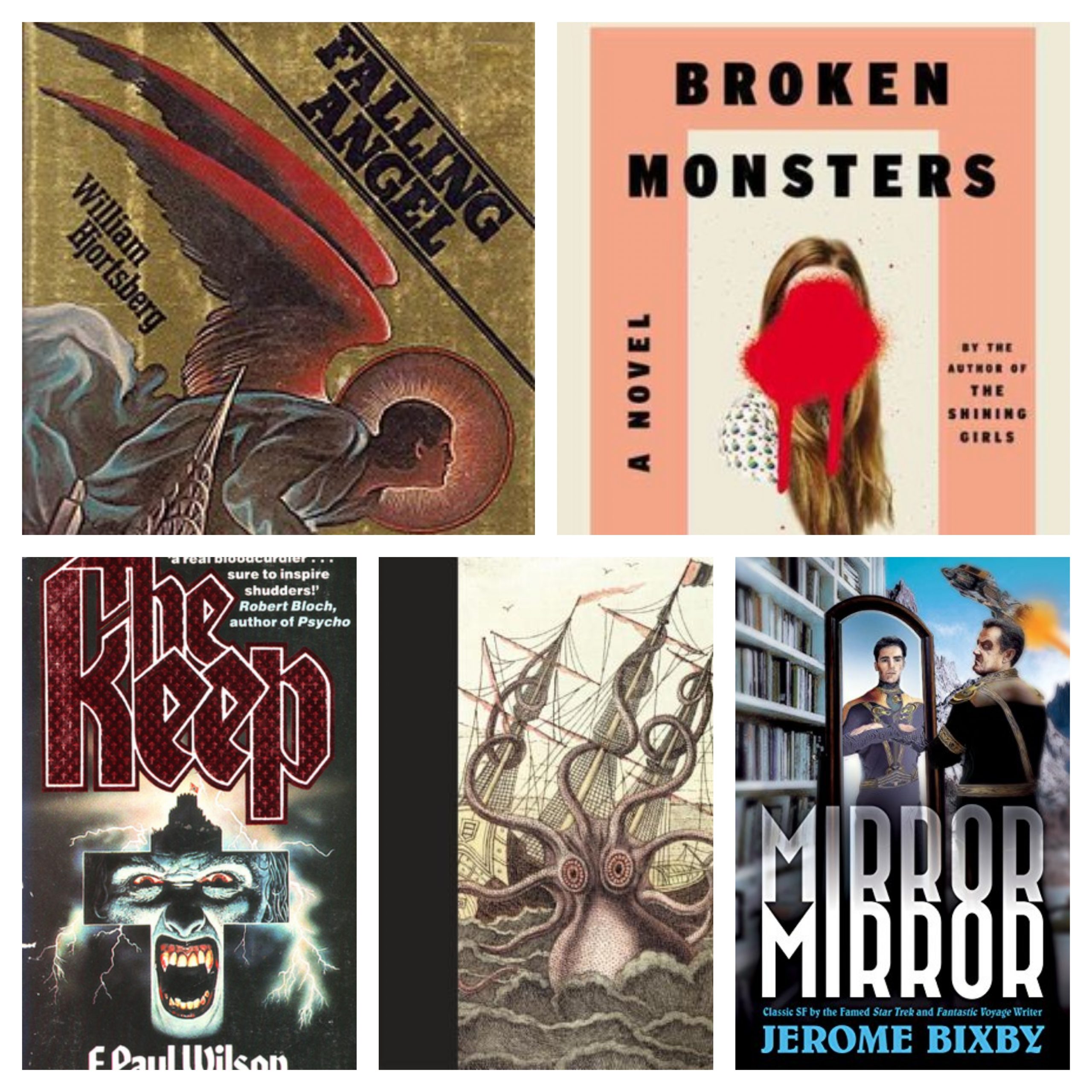Welcome, welcome. And a merry, merry unbirthday to you, folks! I read some more horror books, so naturally it’s time to dig in. In this one we have a dark and satanic thriller masquerading as a classic detective noir, we’ve got a weird serial killer story with a beyond strange twist, we have Nazis being killed by ageless beings, we have a baroque sea voyage with a dire finale and we have a collection of stories from one of the greatest writers of TV sci-fi.
For those just joining me, this is my journey through the following “Best of” Horror lists:
Reedsy Discovery Best Horror Books
Stephen Jones & Kim Newman’s Horror: 100 Best Books
Stephen Jones & Kim Newman Horror: Another 100 Books
If you want to check out my previous entries, they can be found here:
Part 20 | Part 19 | Part 18 | Part 17 | Part 16 | Part 15 | Part 14 | Part 13 | Part 12 | Part 11 | Part 10 | Part 9 | Part 8 | Part 7 | Part 6 |Part 5 | Part 4 | Part 3 | Part 2 | Part 1
Will you, won’t you, will you, won’t you, won’t you join the dance?
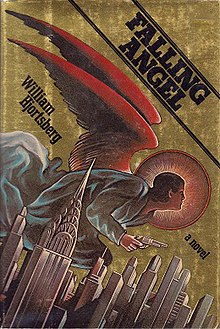
Falling Angel (William Hjortsberg, 1978)
List: Jones & Newman
Private dick Harry Angel takes on a lucrative missing person case by a mysterious client that leads him down a dark path of murder and the occult. In his quest to track down the missing former singing heartthrob Johnny Favorite, he gets embroiled in voodoo rituals and Satanic rites, gets mixed up in multiple leads who wind up dead, gets the shit beat out of him multiple times and even falls in love (which ends about as well as you can imagine). Through it all, who is pulling the strings of this whole case?
Like The Keep, I had originally come to Falling Angel via its film adaptation Angel Heart which is a solid film for sure. It’s no surprise to discover that its source material is also quite good. While the film does make some changes, most notably in the ending and part of the setting (changing a large chunk of the location from New York City to New Orleans, I would guess to better gel with the voodoo/occult content), it’s generally pretty faithful to the story beats of the novel for the most with the differences being more in the details of certain characterizations. In the book, Harry Angel is very much a standard cold-hearted gumshoe while in the film it seems like Parker has tried to add a little more sympathy for him. Angel’s client Louis Cypher (say it out loud fast) is fleshed out much more in the book while in the film, played by Robert De Niro, he’s basically a glorified cameo. The book is much more mysterious and elusive at times, building this confusing atmosphere of death and mysticism while hewing close to its hard-boiled detective roots in the fiction of authors like Mickey Spillane and Dashiell Hammett. This creates an interesting kind of cognitive dissonance at times with Hjortsberg getting overly invested in odd procedural minutae, especially in describing Angel traveling from one location to another (do I really need to know every subway train he took to get from point A to point B?) then proceeding to have Angel stumble on a murder with someone’s heart ripped out or a voodoo ritual with a naked woman cutting a chicken’s head off and bathing in its blood. I do enjoy reading old school crime fiction and occult horror alike, so this nice blend of the two really does hit the spot for me.
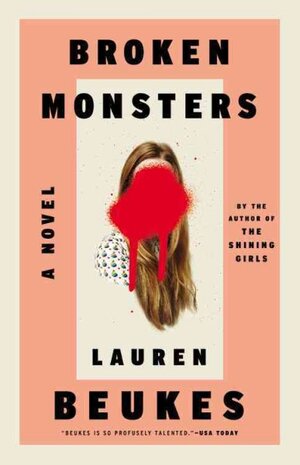
Broken Monsters (Lauren Beukes, 2015)
List: Reedsy Discovery
Detective Versado finds herself lead investigator on an incredibly bizarre case. A young boy was found with just his upper torso attached to the lower half of a deer. This is only the first. To make matters worse, her daughter is getting into all kinds of trouble including getting mixed up in the case. Meanwhile the killer grows increasingly erratic and detached from reality, trying to open the portal that will lead him to transcendence. Along for the ride is TK, a homeless man with a checkered past who just wants to protect his friends and Jonno and Jen, youtube journalists who are willing to do anything to get the attention they so richly deserve.
Broken Monsters is an interesting if flawed book. For a good 3/4 of its duration, it’s essentially a fairly straight forward serial killer procedural, albeit with some very unusual murders, peppered with colored side character sub plots. The climax of the novel goes completely off the rails though into full blown supernatural mind fuck that seems to come out of nowhere. Through the course of the novel, I felt like it did a very good job of fleshing out the characters and making them feel more than one-dimensional, particularly the detective and her daughter. Plot-wise though it did play out in a pretty standard predictable way for the most part. If you’ve read or seen more than a couple of serial killer thrillers, the beats will seem quite familiar. In one way, that makes the ending’s truly insane tilt into crazy town definitely seem surprising. But there are almost no indications in the preceding hundreds of pages that would indicate it was going in that direction at all. It’s a confounding decision to say the least. I would think the people who come to this wanting a Thomas Harris-style comfy procedural are going to feel like the wool has been pulled over their eyes. And those coming into expecting something more full-blown horror is going to be thrown off by the majority of the book. Overall it feels like two competent pieces of fiction at war with one another. Still I do think there’s enough here to recommend if you at least expect the rug pull.
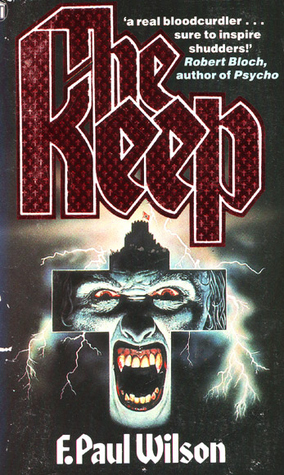
The Keep (F. Paul Wilson, 1981)
List: Jones & Newman
The Keep, an elaborated constructed guard post/castle in the remote mountains of Romania is ages old and kept in pristine condition via mysterious sources. That is, until it is occupied by Nazi forces who awaken a long dormant threat that begins killing their men. After radioing for a request for transfer, high command sends an SS unit to deal with the situation which only exacerbates the problem. They ultimately bring in a debilitated old man and his buxom daughter who happen to be experts in Romanian folklore to discern how to stop the unseen force from its string of murders. Meanwhile a mysterious red-headed stranger arrives in the nearby town, suspiciously knowing much more about the keep than he should. All these threads come together and climax in a fierce battle of good vs. evil and for the soul of all mankind.
I had previously seen the film version of The Keep by well-regarded director Michael Mann and found it to be kind of a trainwreck of a movie. Of course, much of that isn’t Mann’s fault. Between having his effects supervisor die on him with a large chunk of effects not finished to the studio cutting his 4.5 hour (!) cut down to a little over 90 minutes making the narrative borderline incomprehensible, it’s not hard to understand why Mann has tried to eradicate the film’s existence from the public consciousness. So how does the book compare? Frankly it’s like night and day in places. While much of the film does generally follow the plot of the book, the content and character development were gutted. The book certainly focuses on building out the characters more. Much more central to the first half of the book as compared to the movie is the power struggle between more traditional military man Captain Woermann and depraved SS Major Kaempffer. Wilson does a pretty good job of actually building some sympathy for a Nazi in Woermann who feels that the direction Germany is heading in is a cowardly and undignified path but is also beholder to his own honor and dedication to the military life for which he’s dedicated his whole life. Kaempffer on the other hand embodies all the worst traits of Nazis, his hatred and mistreatment of women, jews and pretty much everyone else around him, his cowardly inner thoughts and behavior at times, his insecurities. The book also provides much more back story on the folklore of the region with a much less telegraphed turn in the plot that what the film did in terms of the true nature of Molissar. Much like the film, the final act of the book switches gears from a more traditional horror story (people getting killed by a monster in the dark) to a more mystical ages old action fantasy at times that reminded me of Highlander (but with zombies). While the movie is deeply flawed, the book isn’t perfect either. It’s depiction of and treatment of Magda, the folklore expert’s daughter, is borderline sexist at times. Wilson seems to relish in lurid descriptions of her physique and while giving her inner voice a desire to break out from the traditional bonds expected of women of the time as a wife and mother, he then gives her a pretty cliche love story arc that feels a little on the hackneyed side. The book also feels a little overly drawn out in places in terms of its exposition which I think could’ve been handled more elegantly. Overall though, it’s still a pretty solid read and definitely better than the film version.
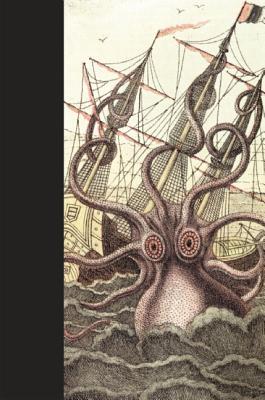
Medusa (E. H. Visiak, 1929)
List: Jones & Newman
We follow Will, a young lad who meets all manner of tragic circumstances before meeting up with the shady fellow Obadiah Moon and joining the crew of a sea-faring vessel where they tangle with pirates, wax philosophical on the essence of sea travel, see false ghosts and ultimately are confronted by a strange monstrous something that threatens to destroy them all.
So Karl Edward Wagner famously described this notoriously difficult to track down book (thanks internet!) “Treasure Island on acid”, and while I certainly see the Treasure Island similarities in its structure, I don’t really see it as being very drug-influenced. The plot as it were is fairly meandering with little to no actual horror elements occurring until toward the very end at which point it comes across as too little, too late. Also the characters were fairly one-dimensional which may very well have been intentional to have them play into certain archetypes, but it made it difficult to really care about any of them. To compound the problems I had with this, the writing style is excruciating to read with Visiak using a much older dialect both in narrative and dialogue which might add to the authenticity of the seafaring tone but makes for an archaic and painful experience in reading it. It’s a shame because there are some interesting ideas hiding in here but it feels like Visiak wrote this mainly for himself with a certain amount of smug self-satisfaction.
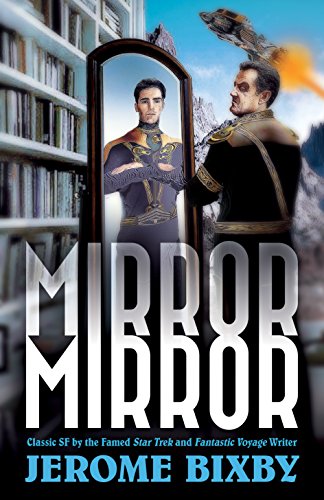
Mirror, Mirror (Jerome Bixby, 1949-1963)
List: NPR
Collected in this volume are the short stories of renowned and influential sci-fi writer Jerome Bixby of television and film. While Bixby is far more well-known for his celebrated teleplays for TV series like Twilight Zone and Star Trek as well as for writing films like Fantastic Voyage and Man from Earth, he also occasionally wrote stories for pulp sci-fi magazines on the side including some that would be be adapted into some of those aforementioned acclaimed episodes.
To start off, “It’s A Good Life” is probably the most well-known of this bunch, adapted into one of the most well-regarded Twilight Zone episodes out there as well as adapted again by Joe Dante for the Twilight Zone movie. This story of a precocious child who can alter the very fabric of reality with a mere thought is indeed a skillfully written and chilling picture of the id of a child set loose to bend all to his will and is one of the best stories in this collection. Other highlights include the sinister doppelgänger tale “One Way Street” and the story “Mirror, Mirror” both of which had elements from them molded into the highly celebrated Star Trek episode “Mirror, Mirror” (although neither story are a great deal like the episode for those wondering). Other less well-known but still interesting stories include “Our Town”, an anti-war parable about a group of the elderly who just want to live their lives in peace, and “For Little George”, a sad story of a road less traveled which is more a character study with mild sci-fi trappings.
The rest of the stories are a bit of a mixed bag. Some have interesting ideas like “Natural History of the Kley” which reminded me a little of the Futurama episode “Godfellas”. Some feel like generic pulpy sci-fi from the era like “Tubemonkey” and “Cargo to Callisto” that just layers obtuse sci-fi jargon to stitch together a mediocre plot.
Actually one part of this collection I enjoyed quite a bit was the introduction by Jerome Bixby’s son who also compiled the collection. He gives an extensive overview of Bixby’s career and doesn’t shy away from burning bridges, insulting the likes of Isaac Asimov (who falsely took credit for writing Fantastic Voyage in later years despite only writing the novelization that was based on the film) and William Shatner (who was busy directing the not very good Star Trek 5 instead of appearing in a Bixby-written Star Trek: TNG episode that returns to the mirror universe). Overall I’m not sure I’d wholeheartedly recommend the entire collection as it has several fairly clunky stories (Bixby never met a heavy-handed allegory he didn’t like…see “Sort of Like a Flower” and “Small War”) but I fell like overall the good outweighs the bad to mediocre given it includes straight up bangers like “It’s A Good Life” and “One Way Street”.

